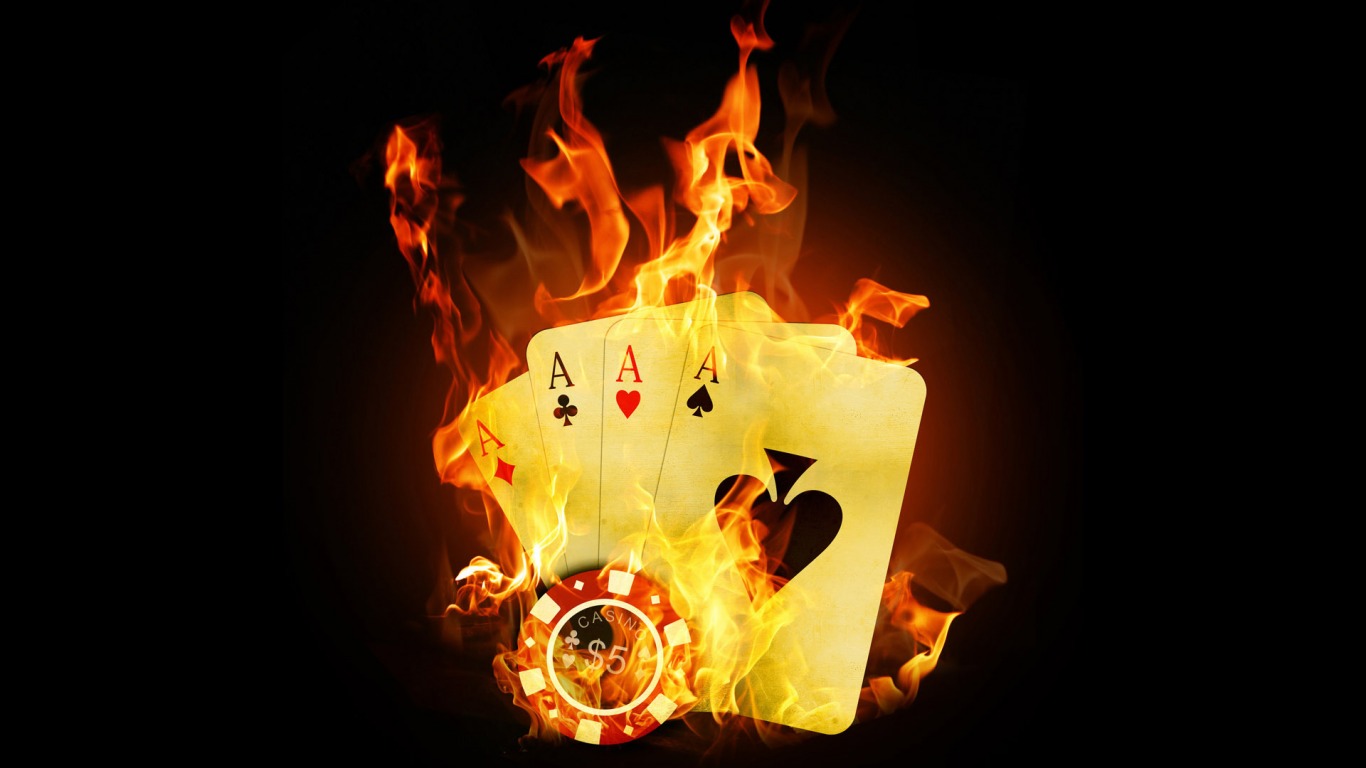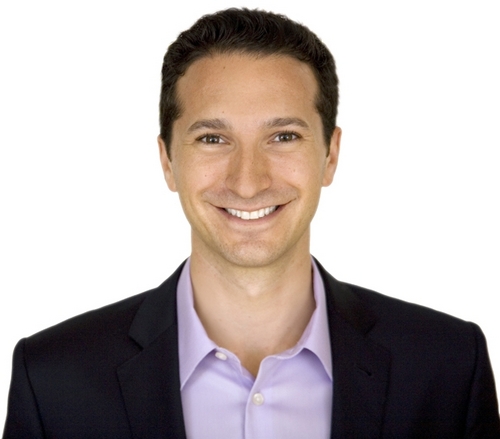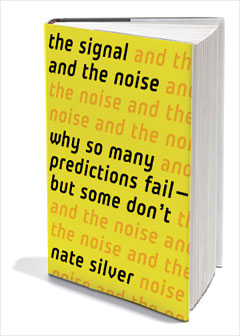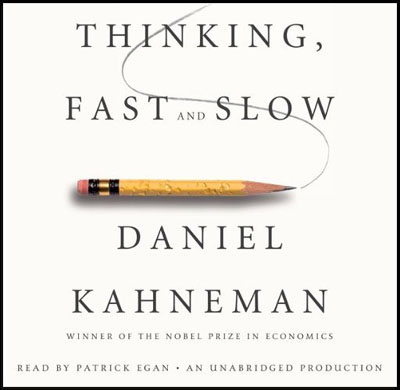
10 books that will make you a better poker player, but not poker books
Book 1 of 10: "Thinking, Fast and Slow" by Daniel Kahneman
By Kidam
Idea: Francis Bullett (thanks!)
If you have never read this book, you missed something really big! The author of this book won a Nobel Prize in Economics in 2002 for his body of work. He is the founder of the theory of perspective. He also worked on the stock abnormalities and cognitive and emotional biases that cause them.
The book is difficult to summarize in a few lines of course, but basically, the author questions why humans and decision making so-called "rational".
It divides the interpretation by the thought into two categories or two systems if you prefer, called System 1 and System 2:
The first system simplifies the process. This is a cognitive tool that allows us to go faster, trusting our intuition.
For example, you see an image and you need to give your thoughts on the image. We see a person. A face. The person is she happy? Angry? Famous? You ask these questions.
Here is the "snap decisions" are made. Our brain hardly works. This is the "fast thinking". Decisions are made without effort or so, but the chances of errors are obviously large.
The second system, it requires time and concentration, but avoids the mistakes of the first system. This is the most difficult decisions to make. For example, if I ask you 45 x 28 =? You will need time to answer this question. You'll probably need a pencil and paper, you will need to concentrate more. This is more difficult than analyzing the image as mentioned above. This is what might be called "slow thinking".
Both systems are fairly easy to understand. By cons, with many examples, the author shows us that our brains are easily deceived and often irrational. Sometimes it is the number one system which then mixes the answer should be given by the number 2 system.
For example, I ask the following question: What is my job? I live in California, I am quiet and reserved, I'm fairly intellectual nature and I do not like to sleep late. I am also more educated than the average person. I am a farmer or a bookseller?
Intuitively, the "fast thinking" of our brain will be tempted to answer "Seller" without rational reason to give that answer. Here is what could be called our intuition for decision.
However, a statistical point of view, there are five times more farmers in California that booksellers and farmers often meet the same descriptive criteria that booksellers.
Our brain is not capable of thinking in terms of statistics. We make a decision we believe the right, without considering all rational aspects. It is also to give the correct answer, have the knowledge that farmers are more numerous in California and booksellers.
Another example from the book may be of interest to you.
We ask the question to a group of students and they are asked which of the following offers the most interested.
$ 75 for a one year subscription to their favorite magazine web version only.
Only $ 150 for a paper one year subscription to their favorite magazine version.
$ 150 for a combined paper and online one year subscription to their favorite magazine version.
The majority of students in this situation choose option number 3 because it is a good economy option 2.
Later, we ask the students to make the choice between:
$ 75 for a one year subscription to their favorite magazine web version only.
Only $ 150 for a paper one year subscription to their favorite magazine version.
In this offer, the same students choose option number 1, whereas it is less expensive than the second and they will settle for this option.
It is not intended to idiots, you go here to young healthy and promising students. But what about their ability to make logical and rational decisions?
You've probably already done this test.
You have three lines as follows, and you are asked which is the longest:
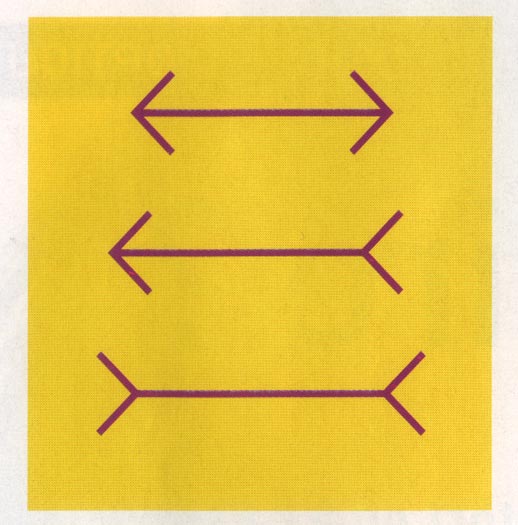
If you have 2 seconds to answer, you tell me the number 1 line is shorter than the other. You use your number one system to respond to the question.
Yet here you are screwed. To really give the correct answer, use the number 2 system, its slow thinking. So, you take a ruler and you measure the three lines. After analysis, you will realize that the three lines have the same length.
The link with the poker?
Just realize that making decisions is something important and deserves reflection. Your "snap decisions" are they really thinking that are rapidly?
When playing poker, was quick decisions and slow to take decisions at each session. Remember to make good decisions quickly, you must have previously practiced many times and used our number 2 system. It's like playing an instrument, for example. At first, when you learn a song, you use your number 2 system, you focus, you make the big hard work. After the rehearsal, it becomes a reflex. The same is true with the poker.
Sept-two offsuit under the gun, FOLD. Aces on the button OPEN RAISE. It is clear decisions. No gray area. Other decisions are more difficult to make.
With what my opponent 3 barrels this board? Can I caller river with top pair? What is the frequency of bluff? Can gain better worse? These questions deserve our attention and we need to use the "slow thinking" in this situation, we need to focus to make the right decision. Think about the recent history, view our HUD, do calculations, etc..
When we review our sessions, it is really important to take nothing for granted. Are we victims of irrationalities when we make decisions? We must always be as objective as possible when we make a judgment on our games.
The same thing can happen on a poker table. The examples are endless, but we do give a better illustrate the analogy.
You are in a 3bet pot with AJ.
The flop comes xxA. You're in position and you callez the cbet your opponent. The turn is an A and your opponent still cbet. You are 150 big blind deep. You callez again. The river is a brick and your opponent pushes all-in.
Some players in this situation will use their first system of decision-making: SNAP CALL. I have a set, I call.
And if that decision required your second system decision making?
Your opponent 3bet 6% of the time. Its cbet in 3bet pot is 45%. His "money won at showdown" is high. His aggression river is low. You have several notes on him and no talking bluff. It just happened that limit recently and could be "scared money".
Can gain better worse? No, it is out of the question. Can he bluffing? Rarely, I look like a player who will caller river a large percentage of the time. Can he have a full? Yes, definitely. Can he have AK? Obviously, it is part of his 3betting range. Is this an easy call? No.
The goal is not whether the right game to do is to fold or caller, but to make you always take a deep breath before making a big decision. You are playing a big pot for all your stack. The total pot could have 300 big blind. There is no reason to "snaper". You have a time bank and this decision deserves reflection.
Other traps that players can get are endless. Next time, before making hasty decisions, ask yourself if this decision is made with your system number 1 or number 2 on your system.
In poker, we must constantly take decisions and this decision affect our results, in other words, our monetary gains. It is therefore essential to ensure that these decisions are always taken in a rational way and the right system!
Discuss "Thinking, Fast and Slow" by Daniel Kahneman on forums PokerCollectif: "Thinking, Fast and Slow" by Daniel Kahneman

